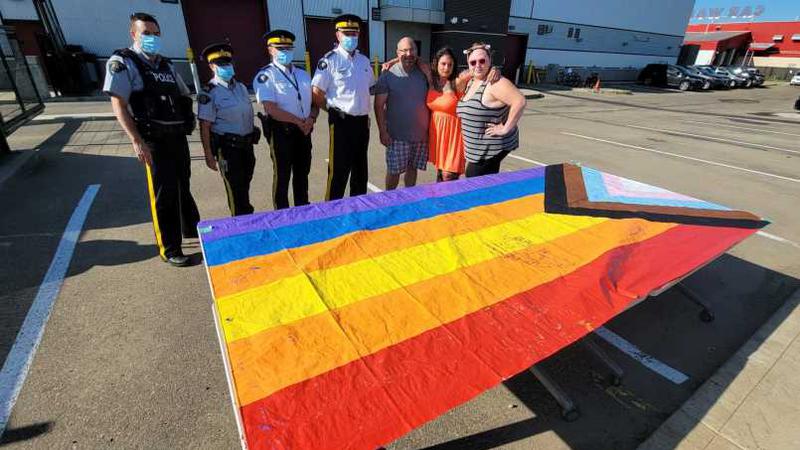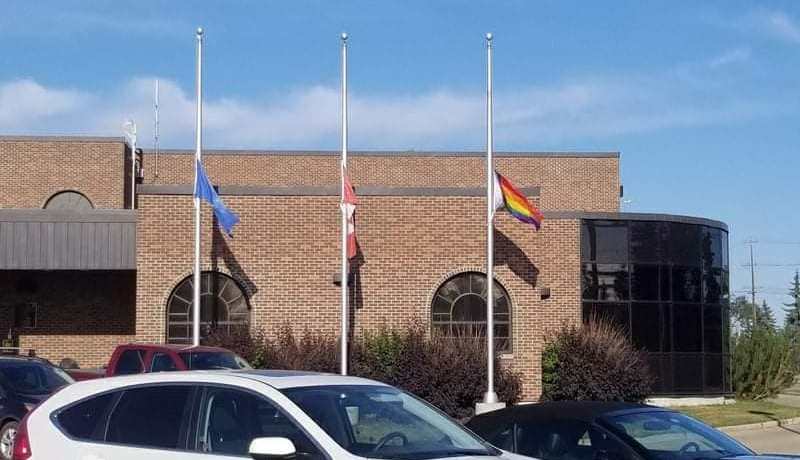
Red Deer RCMP’s involvement in Pride Week celebrated and denounced
Editor’s note: 2SLGBTQ+, which stands for Two Spirit-Lesbian-Gay-Bisexual-Transgender-Queer-Plus is a modern variant of the LGBT acronym, which rdnewsNOW is choosing to use in our reporting. People we speak to are quoted using the version of the acronym they chose.
—
Central Alberta Pride Week (Aug. 8-14) each August is synonymous with rainbow crosswalks, the fruit float, and an extravagant drag show.
A scaled-back 2021 event, however, meant Central Alberta Pride Society (CAPS) found itself in a unique position to grow relationships.



